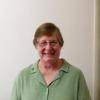"Open Hearts, Bold Strides" is the tag line of Ruah Community Services. It would suit any of our religious congregations today. I was a Presentation Sister working with the Daughters of Charity in a nongovernment organization — paid by the government — and doing "Nano" work. Our Presentation founder, Nano Nagle, would have felt right at home here!
Recently, and rather regretfully, I finished work with Ruah Community Services, which is a not-for-profit organization in Western Australia committed to working alongside people living in poverty and on the margins. Ruah provides meal services, mental health support, assistance in moving from the street to a home, transitioning from prison, dealing with domestic violence, support for aboriginal women and those likely to lose their tenancy, and many other support services.
I have worked in providing mental health support to individual clients, managing mental health teams, supervising psychologist registrars and directing workforce development for the organization. It has been a privilege over 25 years to work with 200 diverse lay staff who listen, engage, plan, provide hope and attend to the basic needs of those receiving the service.
Employees generally live out the meaning of "Ruah," a Hebrew word meaning breath, spirit of life, wind. Ruah has constantly sought ways to assist those most in need. The service began with the Daughters of Charity Sisters providing a refuge for women and children and a soup kitchen for street people. It has expanded its capacity to meet many more needs today.
Anne was an aboriginal mother who lived on the streets of Perth for more than 10 years. We, Presentation Sisters, provided her with short-term housing, while Ruah found more permanent accommodation for Anne and her son.
She described living on the streets as "dangerous, because you never know what might happen." She was often ill and spent the day trying to find a safe place, going to Ruah Center in the morning for a shower and something to eat, sitting around during the day and then looking again for somewhere "safe" to spend the night.
Anne was helped to move into and maintain a home. She was grateful to Ruah for support in this journey.
In the 1990s, workers and clients regularly prayed together and shared a quiet prayer room. The values of respect, creativity, integrity, partnership and grassroots were actively lived in client work. Clients assisted in writing the foundation policies for mental health services and sat in on interview panels for new workers. They truly collaborated in creating services where each individual was accepted just as they were.
Inspirational leadership was demonstrated in the vision, creativity, inclusivity and genuine care of clients and workers. Ruah's strengths included setting clear parameters for work, establishing teams for all services, regularly supervising workers, practicing consultation and communication at all levels, seeing a need and responding, recognizing and working on the "shadow," and encouraging a journey of inclusive spirituality.
Ruah was well ahead of its time in seeing emerging needs and addressing these in practical ways. For example: creating recreation programs for people in psychiatric hostels where there was nothing to do; introducing recovery and the WRAP (Wellness Recovery Action Plan) to Western Australia; providing mental health services to aboriginal people; and providing a refuge for women in domestic violence, long before these needs were generally recognized.
Ruah is a great model for us in religious life today. Ruah management shared all its training modules, information and experience generously as it networked with other agencies in developing partnerships to benefit others. For example, "Fifty Lives, Fifty Homes" required the coordination by Ruah of more than 20 government and nongovernment organizations in assisting homeless people to find and maintain housing.
It was a special privilege to work with clients, to receive their trust as I heard individual stories, to experience their beautiful acceptance of my mistakes as I tried to problem-solve for them, and in the process learned so much from them.
One client, Ben, told me he was a better person for having experienced bipolar affective disorder, because he developed understanding, acceptance and appreciation of others despite losing his family, job, house and "friends" due to suffering a serious mental illness. Ben now sings in the "Spirit of the Streets" choir, regularly attends gatherings and has found a new partner.
Another client, Jenny, could not bear having anyone stand behind her because her "partner" had beaten and abused her so much. I worked with her in developing skills for living alone, managing panic attacks and severe anxiety, and building self-confidence. She was a gentle, gifted soul who created beautiful art.
In transitioning to a new ministry, I leave with deep gratitude for being part of an organization with an expansive vision and passion for social justice:
- A group that had eight trained facilitators for the symposium "Awakening the Dreamer";
- An office that practiced sustainability in the workplace by, for example, planting thousands of trees annually to counteract our carbon footprint, that recycled rigorously, that had competitions for greening each office, all led by a "green team";
- An organization that developed aboriginal cultural awareness training, exploring local aboriginal history, the impact of colonization, working in culturally sensitive ways with aboriginal people, and examining white privilege and our own openness to walking alongside and promoting aboriginal people in the workplace.
I learned so much from this ministry — from my clients and co-workers — but two special principles remain deeply embedded in my heart as I move on: "Wisdom is in the group" and "Nothing about me without me!"
[Presentation Sr. Lucy van Kessel is a registered psychologist. On Jan. 1, 2018, she became congregational leader for the Presentation Sisters in Western Australia.]
